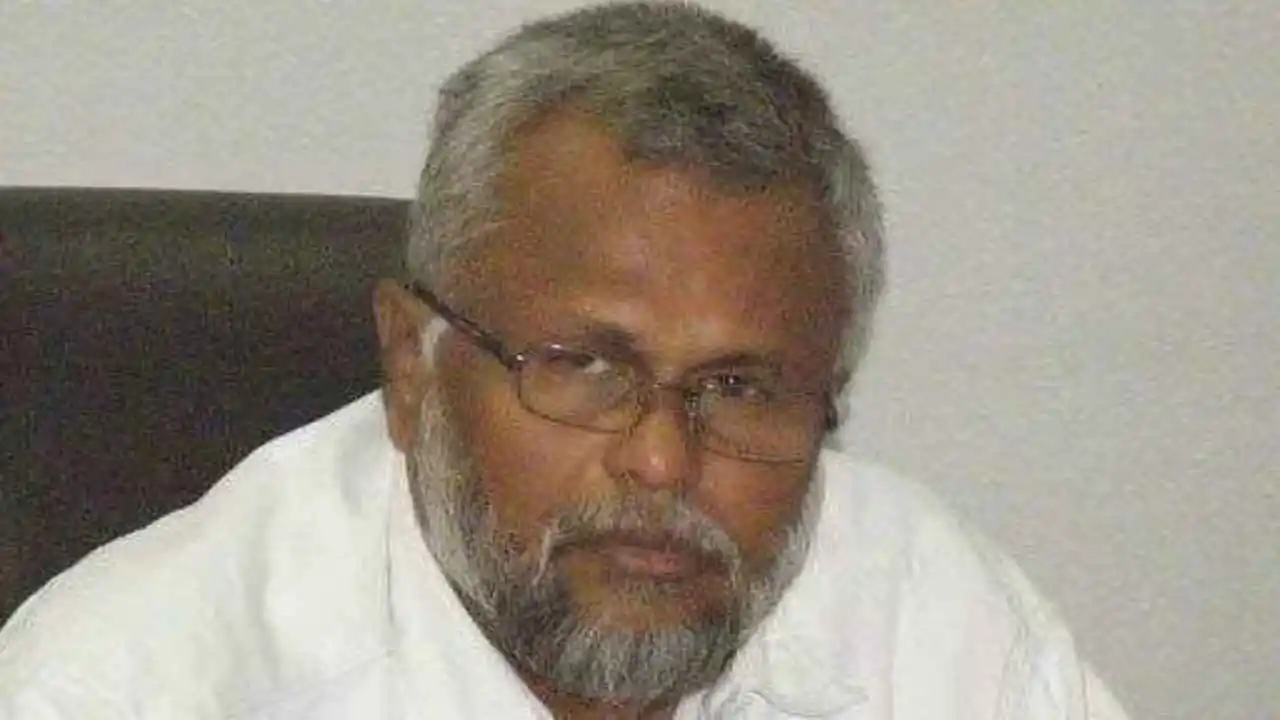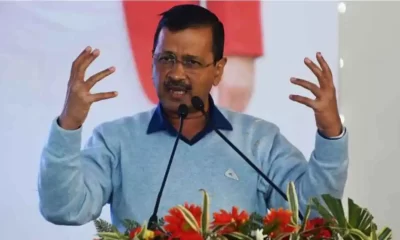Latest world news
Westpac’s scandal highlights a system failing to deter corporate wrongdoing

Elise Bant, University of Melbourne and Jeannie Marie Paterson, University of Melbourne
The news that Australia’s anti money-laundering regulator has accused Westpac of breaching the law on 23 million occasions points to the prospect that powerful members of corporate Australia are still behaving badly.
This despite the clear lessons offered by the Banking Royal Commission.
Regulators are still struggling to find the right balance between pursuing wrongdoers through the courts – an admittedly costly, time-consuming and highly risky business – and finding other means to punish and deter misconduct.
Australia’s anti money-laundering regulator, AUSTRAC, is seeking penalties against Westpac in the Federal Court.
Each of the bank’s alleged contraventions attracts a civil penalty of up to A$21 million. In theory, that could equate to a fine in the region of A$391 trillion.
In practice, it is likely to be a mere fraction of that sum. Commonwealth Bank breached anti-money-laundering laws and faced a theoretical maximum fine of nearly A$1 trillion, but settled for A$700 million.
No doubt the reality that companies can minimise penalties is a factor in why breaches continue.
This impression is reinforced by revelations last week that financial services company AMP continued to charge fees to its dead clients despite the shellacking it received at the hands of the royal commission.
Last month a Federal Court judge refused to approve a A$75 million fine agreed between the Australian Competition and Consumer Commission and Volkswagen to settle litigation over the car company’s conduct in cheating emissions tests for diesel vehicles. The judge was reported to be “outraged” by the settlement, which meant Volkswagen did not admit liability for its misconduct.
The A$75 million is a drop in the ocean of the likely profits obtained from this systemic wrongdoing and pales into insignificance next to fines imposed in other countries.
Proposals for law reform
So business as usual, right?
Maybe not for long. The Australian Law Reform Commission has just released a discussion paper on corporate criminal responsibility.
It points out that effective punishment and deterrence of serious criminal and civil misconduct by corporations in Australia is undermined by a combination of factors.
These include a confusing and inconsistent web of laws governing the circumstances in which conduct is “attributed” to the company. Similar problems of inconsistency arguably also undermine other key areas, such as efforts to give courts the power to impose hefty fines based on the profits obtained by the wrongdoing
The repeated attempts to come up with new and more effective attribution rules arise because corporate wrongdoers are “artificial people”. For centuries, courts and parliaments have struggled with how to make them pay for what is done by their human managers, employees and (both human and corporate) agents. All too often a company’s directors disclaim all knowledge of the wrongdoing.
To fix this, the ALRC recommends having one single method to attribute responsibility. It builds on the attribution rule first developed in the Trade Practices Act 1974 (Cth) and now used, in various forms, across various statutes.
The ALRC proposes that the conduct and state of mind of any “associates” (whether natural individuals or other corporations) acting on behalf of the corporation should be attributable to the corporation.
This goes well beyond the traditional focus on directors and senior managers and would provide some welcome consistency in the law.
Importantly, serious criminal and civil breaches that require proof of a dishonest or highly culpable corporate “state of mind” can be satisfied either by proving the state of mind of the “associate” or that the company “authorised or permitted” the conduct.
A “due diligence” defence would protect the corporation from liability where the misconduct was truly attributable to rogue “bad apples” in an otherwise a well-run organisation. There would be no protection in the case of widespread “system errors” and “administrative failures” so pathetically admitted during the royal commission.
The ALRC also proposes that senior officers be liable for the conduct of corporations where they are in “a position to influence the relevant conduct and failed to take reasonable steps to prevent a contravention or offence”.
This would place the onus on those in a position to change egregious corporate practices to show they took reasonable steps to do so.
Removing the penalty ceiling
These recommendations, if adopted could prove a game-changer for regulators asking themselves “why not litigate?” and corporations used to managing the fall-out of their misconduct as simply a “cost of business”.
The ALRC’s recommendations that the criminal and civil penalties should be enough to ensure corporations don’t profit from wrongdoing will be welcomed by many. Some academics have gone further and argued that the law should be changed to make it clear that civil, not just criminal penalties, should be set at a level that is effective to punish serious wrongdoing.
The ALRC also raises the question whether current limits on penalties should be removed. The Westpac scenario might be just the kind of case to make that option attractive.![]()
Elise Bant, Professor of Law, University of Melbourne and Jeannie Marie Paterson, Professor of Law, University of Melbourne
This article is republished from The Conversation under a Creative Commons license. Read the original article.
Latest world news
Bigg Boss 14 contestant Rahul Vaidya struggles walking in knee deep water, compares Dubai rains with Mumbai floods
Singer and TV personality Rahul Vaidya was recently stranded in the Dubai rains.

Rahul Vaidya, who was in Dubai ahead of his show which was scheduled to take place today, left the country due to heavy rains and reached Kolkata. The artist shared on social media his encounters in the UAE city, including challenges like walking through knee-deep water. Rahul provided an update regarding the heavy rainfall in Dubai on his Instagram profile.
The Bigg Boss 14 contestant revealed that he was in Kolkata and prepared to do an evening performance. Recalling the terrifying period he went through, Vaidya said there was a lot of confusion and panic in Dubai. The situation was similar to that when heavy floods hit Mumbai in 2005.
Vaiday also posted seval other images and videos of cars that were underwater and flooded roadways. The Bigg Boss 14 contestant, who shared his ordeal, claimed that even though it had just rained for two hours, the situation was dire.
In one of the video, which went viral he can be seen struggling in walking in knee-deep water. He can be also seen holding his sneakers in one hand and with other hand he was seen managing other things.
This is the result of the two hours of rain that it had, he can be heard saying in the video. Vidya also said he dosen’t believe Dubai is accustomed to a lot of rain. Everything had stopped working, he remarked.
After taking part in the first season of the singing reality show Indian Idol, Rahul Vaidya gained widespread recognition. In addition to Bigg Boss, he took part in Khatron Ke Khiladi 11.
Meanwhile, heavy rains that triggered flooding in the UAE and Bahrain, which left 18 people dead in Oman on Sunday and Monday, have paralyzed the financial hub of the Middle East, Dubai.
A lot of incoming flights were diverted from Dubai’s international airport because of the rain. At 7:26 p.m., the busiest airport in the world for foreign visitors stopped accepting new arrivals; a gradual resumption was announced for more than two hours later.
Images of planes navigating flooded tarmacs are making the rounds on social media.
According to pictures shared on social media, the flagship malls Dubai Mall and Mall of the Emirates both experienced heavy floods, while at least one Dubai Metro station had water up to the ankles.
There were several road collapses, severe flooding in residential areas, and numerous reports of leaks from windows, doors, and roofs.
Due to the unfavourable weather, schools around the United Arab Emirates were forced to close, and as more storms are predicted, the closures are anticipated to last until Wednesday. The government of Dubai allowed its staff to work remotely till this Wednesday.
Latest world news
Dubai sky turns green during storm in UAE, video goes viral
The UAE witnessed record-breaking rainfall on Tuesday and the National Centre of Meteorology recorded 254 mm of rainfall in less than 24 hrs in the Khatm Al Shakla area in Al Ain.

1 person was killed in UAE as it witnessed heavy rainfall on Tuesday, stranding commuters, flooding roads, disrupting trains and flights and resulting in water leakage from mall ceilings. The UAE witnessed record-breaking rainfall on Tuesday and the National Centre of Meteorology recorded 254 mm of rainfall in less than 24 hrs in the Khatm Al Shakla area in Al Ain. It is being said that the rainfall was the highest documented since the start of data collection in 1949.
The heavy rainfall in UAE came days after a similar situation in neighbouring Oman, where 13 people were killed in flash floods. Many parts of Oman saw torrential rains, which caused students to be trapped in buses and swept away motorists and trapped people in their homes.
Videos from Dubai circulating on social media showed widespread waterlogging on roads in Abu Dhabi, Dubai and other important cities. This left daily commuters in cars and other vehicles struggling to get back home. Dubai metro station too was seen flooded and closed.
One such video circulating on social media shows the aerial view of the city of Dubai from the top of a building. In the video the stormy winds are seen blowing over the city of Dubai. As the storm intensifies the Dubai sky turns green and ultimately gets covered by heavy rainfall. The video has gone viral on social media with more than 1.1 million views.
Another video showed water leakage from the ceilings of shopping malls, flooding the floors and destroying goods. A video which was shot in the famous Mall of the Emirates, showed pieces of ceiling falling as the rainwater gushed inside. Videos from many outlets of the Deira City Centre mall chain showed escalators being rendered unusable. Majid Al Futtaim, the company which owns the Mall of Emirates, said that the shopping complexes have been kept open and the customers are being sent away from the flooded areas.
India News
Sri Lankan Minister Douglas Devananda says statements on reclaiming Katchatheevu island from Sri Lanka have no ground
Devananda told the media on Thursday that it is not unusual to hear such claims and counterclaims about Katchatheevu as elections are taking place in India.

Sri Lankan Minister Douglas Devananda has said the statements from some political leaders in India on reclaiming Katchatheevu from the island nation have no ground. He told the media on Thursday that it is not unusual to hear such claims and counterclaims about the strategic island as elections are taking place in India.
The Sri Lankan Minister said he thought India is acting on its interests to secure this place to ensure Sri Lankan fishermen would not have any access to that area and that Sri Lanka should not claim any rights in that resourceful area. According to the 1974 agreement, Devananda said Indian and Sri Lankan fishermen can go fishing in the territorial waters of both countries until the pact was reviewed and amended in 1976.
The amended agreement resulted in fishermen from both countries being barred from fishing in neighboring waters. India’s ministry of External Affairs (MEA) on Thursday steered clear of the row surrounding Katchatheevu island. To a volley of questions on the Katchatheevu issue, MEA spokesperson Randhir Jaiswal reffered to External affairs Minister S Jaishankar’s recent comments on the matter.
He said he would like to talk about the issue that has been raised. He added the External Affairs minister has spoken to the press here in Delhi and also in Gujarat and has clarified all the issues. He said everyone should look into the press engagements and they would find the answers to their questions there.
The remarks from Devananda, a Sri Lankan Tamil, came days after the Narendra Modi government accused the Congress and its ally DMK in Tamil Nadu of overlooking national interests by handing over Katchatheevu island to Sri Lanka in 1974. The BJP has also been slamming the 2 parties for not ensuring the rights of the fishermen wanting to fish in waters around the island.
-

 Entertainment23 hours ago
Entertainment23 hours agoBollywood stars Vidya Balan, Kartik Aaryan, Pratik Gandhi, Ileana D’Cruz, Mouni Roy, Radhika Madan, Mrunal Thakur attend Do Aur Do Pyaar premiere
-

 Cricket news21 hours ago
Cricket news21 hours agoHappy Birthday KL Rahul: Suniel Shetty wishes son-in-law KL Rahul on his 32nd birthday
-

 2024 Lok Sabha Elections4 hours ago
2024 Lok Sabha Elections4 hours agoPrime Minister Narendra Modi urges citizens to vote in record numbers as voting for first phase of Lok Sabha elections begins on 102 seats across India
-

 India News20 hours ago
India News20 hours agoEnforcement Directorate seizes Shilpa Shetty’s husband Raj Kundra’s properties worth Rs 97 crore
-

 India News19 hours ago
India News19 hours agoEnforcement Directorate says Arvind Kejriwal is deliberately eating mangoes, sweets, taking sugar with tea to increase his blood sugar level and create ground for bail
-

 2024 Lok Sabha Elections2 hours ago
2024 Lok Sabha Elections2 hours agoKamal Haasan, Rajinikanth, Vijay Sethupathi, Dhanush vote in Chennai
-

 2024 Lok Sabha Elections3 hours ago
2024 Lok Sabha Elections3 hours agoLok Sabha elections 2024: Google Doodle marks the start of polls with index finger voting symbol
-

 2024 Lok Sabha Elections2 hours ago
2024 Lok Sabha Elections2 hours agoLok Sabha elections 2024: TMC, BJP workers clash in West Bengal’s Cooh Behar ahead of voting







